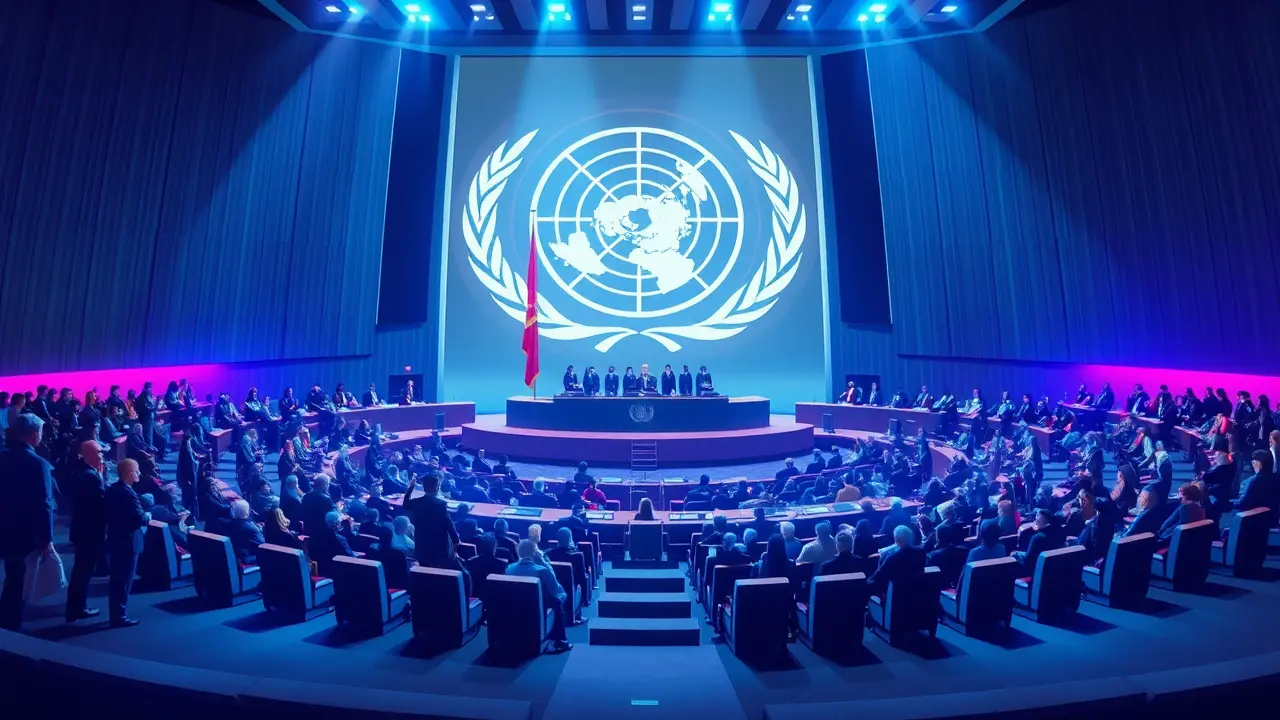
Politicssanctions & tradeEconomic Sanctions
UN Vote Condemns US Embargo on Cuba for 33rd Year.
AN
Anna Wright
3 days ago7 min read
For the thirty-third consecutive year, a stark and telling ritual has played out within the hallowed halls of the United Nations General Assembly, where the world has delivered a near-unanimous and resounding condemnation of the United States' economic, commercial, and financial embargo against Cuba. This annual vote, more than a mere diplomatic formality, serves as a profound mirror reflecting the enduring tensions of a post-Cold War world still grappling with the ghosts of its past.The resolution, which passed with overwhelming support, calls for the termination of a punitive policy first imposed in 1960, a mere year after Fidel Castro's revolutionary forces swept into Havana, fundamentally reshaping the geopolitical landscape of the Western Hemisphere. This embargo, a relic of a bygone era of superpower confrontation, has long been criticized not as a tool of principled foreign policy but as a blunt instrument of collective punishment, one that has disproportionately impacted the daily lives of ordinary Cuban citizens, limiting their access to medicines, food, and economic opportunity for generations.The human cost is immeasurable, woven into the fabric of countless families who have struggled against scarcity, a narrative often lost in the high-political rhetoric of sovereignty and security. The vote itself creates a fascinating diplomatic tableau; while the United States and its steadfast ally Israel stood in opposition, and notable abstentions came from Ukraine and Colombia, the vast chorus of nations from Latin America to Europe and beyond spoke with one voice, isolating Washington on this issue with a consistency that is as remarkable as it is damning.This isolation is particularly poignant given the current administration's stated goals of re-engaging with multilateral institutions and championing human rights, creating a palpable contradiction at the heart of its foreign policy. The context of Ukraine's abstention adds another layer of complex, realpolitik drama, highlighting the difficult balancing act faced by nations caught between condemning a historical injustice and maintaining solidarity with a key military patron in a contemporary conflict.Behind the vote tallies lies a deeper story of a small island nation's resilience and the failure of a maximalist pressure campaign to achieve its stated objectives of fostering democratic change, instead often cementing nationalist sentiment and providing the Cuban government with a perpetual external scapegoat for internal economic failures. The embargo, in the eyes of many analysts and human rights advocates, has not weakened the Cuban government's grip on power but has instead fortified its narrative of a nation under siege, allowing it to deflect blame for its own systemic economic mismanagement and suppression of dissent. As the world moves further into the 21st century, this annual UN vote stands as an enduring testament to a policy frozen in time, a poignant reminder that the tools of yesterday's conflicts are ill-suited for addressing the complex challenges of today, and that true strength in foreign policy often lies not in the maintenance of punitive measures, but in the courage to pursue dialogue and a more nuanced, humane engagement.
#UN General Assembly
#US Cuba embargo
#annual vote
#international relations
#economic sanctions
#featured
Stay Informed. Act Smarter.
Get weekly highlights, major headlines, and expert insights — then put your knowledge to work in our live prediction markets.
Comments
It’s quiet here...Start the conversation by leaving the first comment.
© 2025 Outpoll Service LTD. All rights reserved.